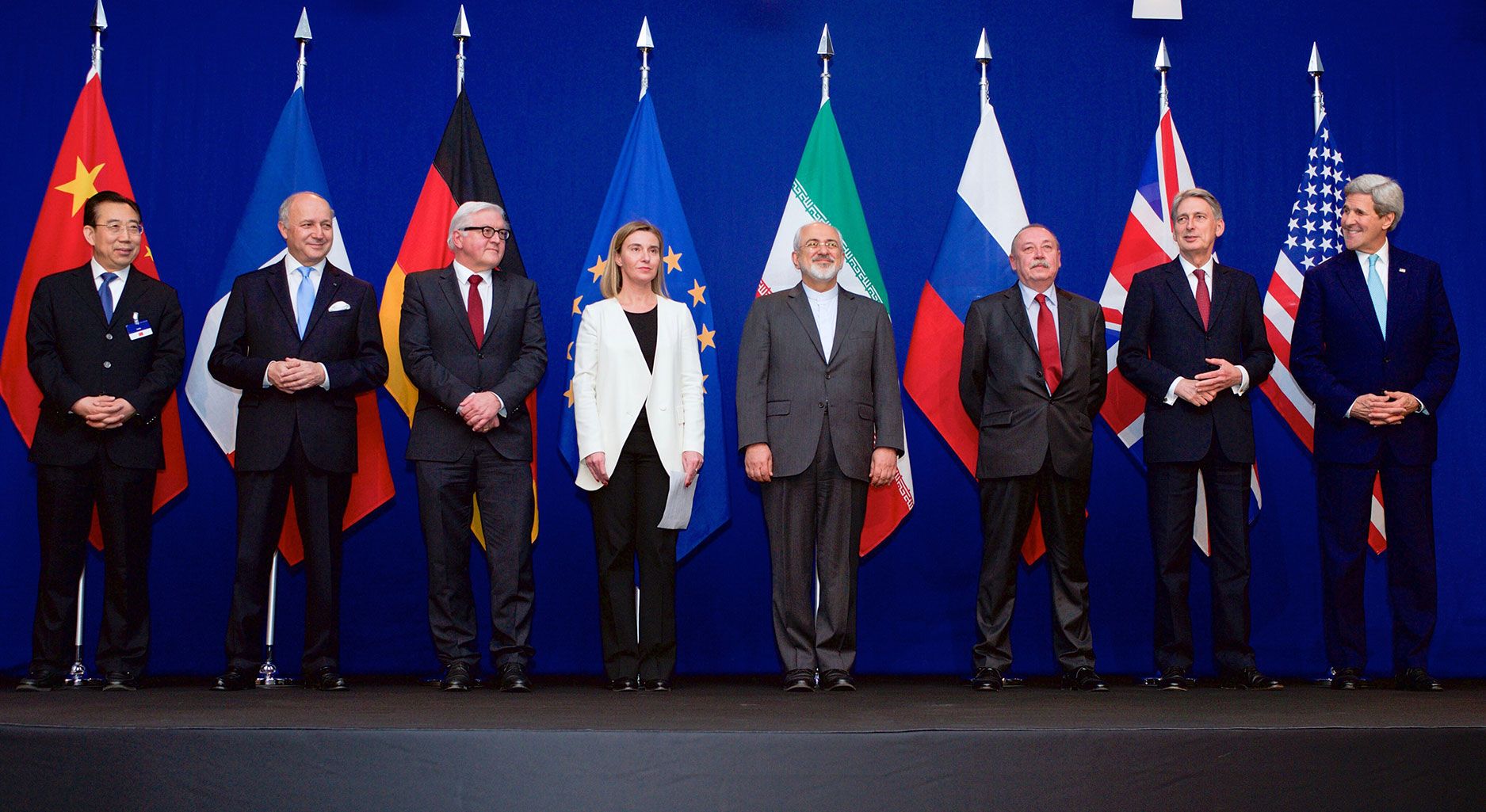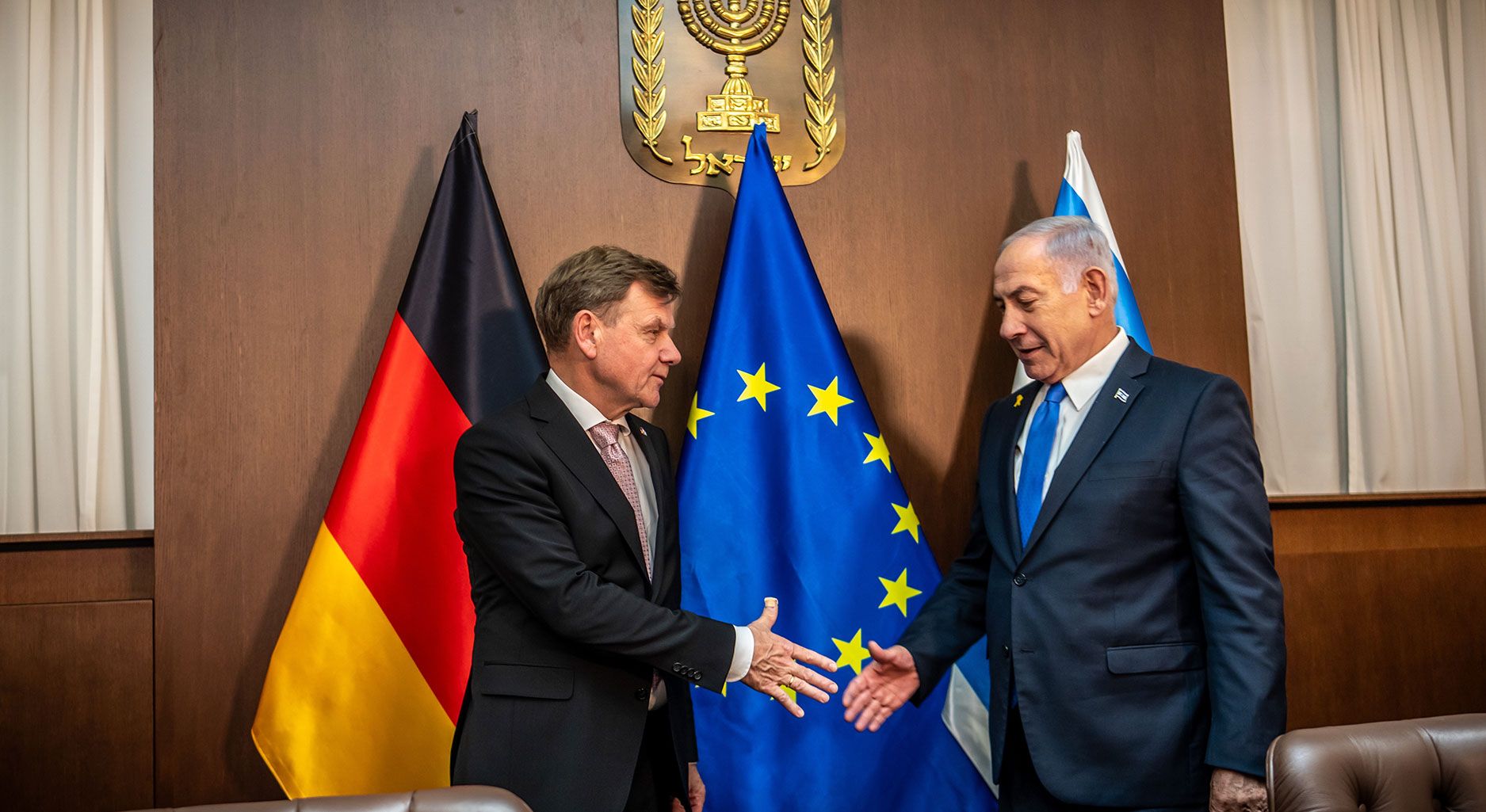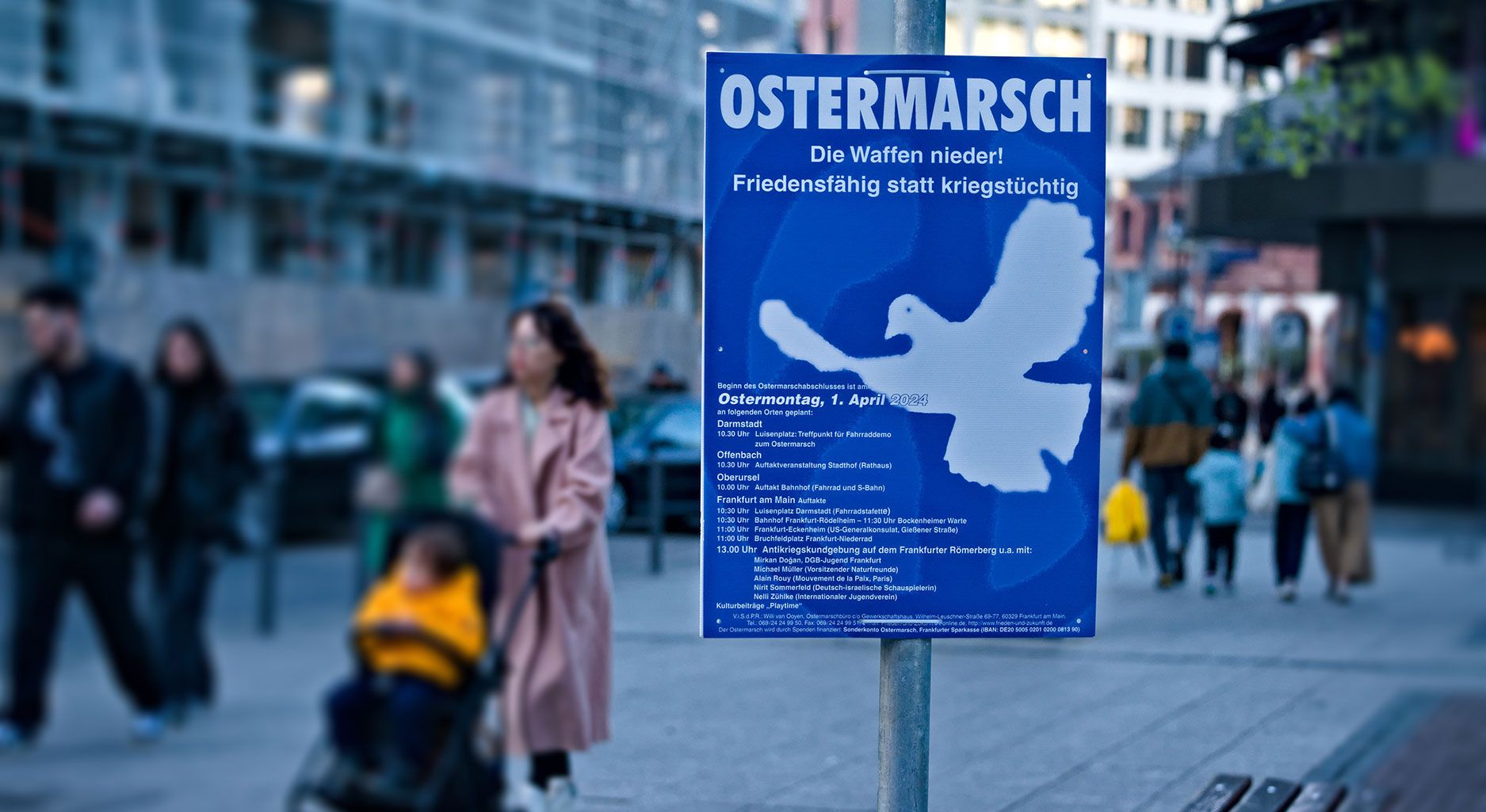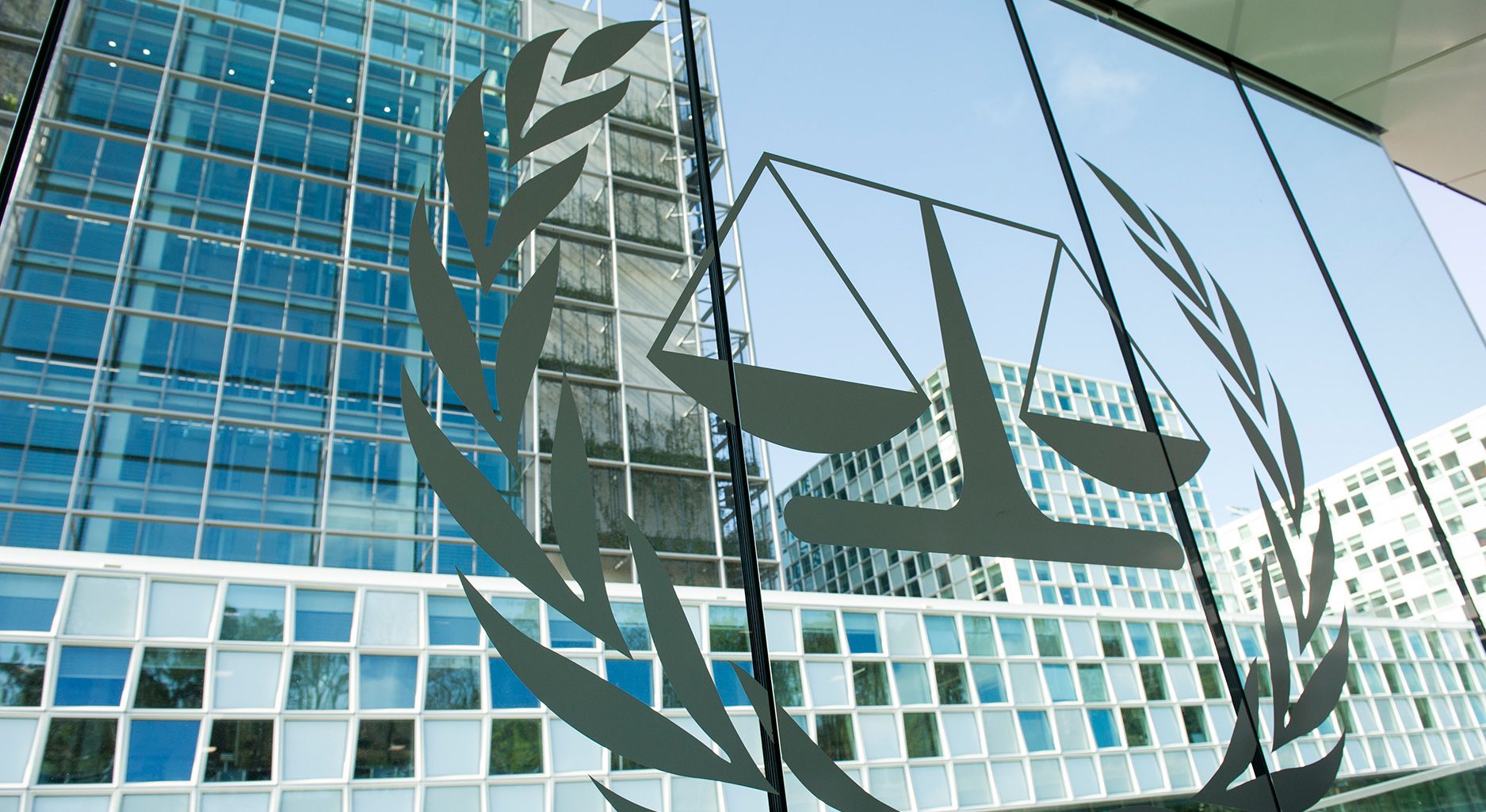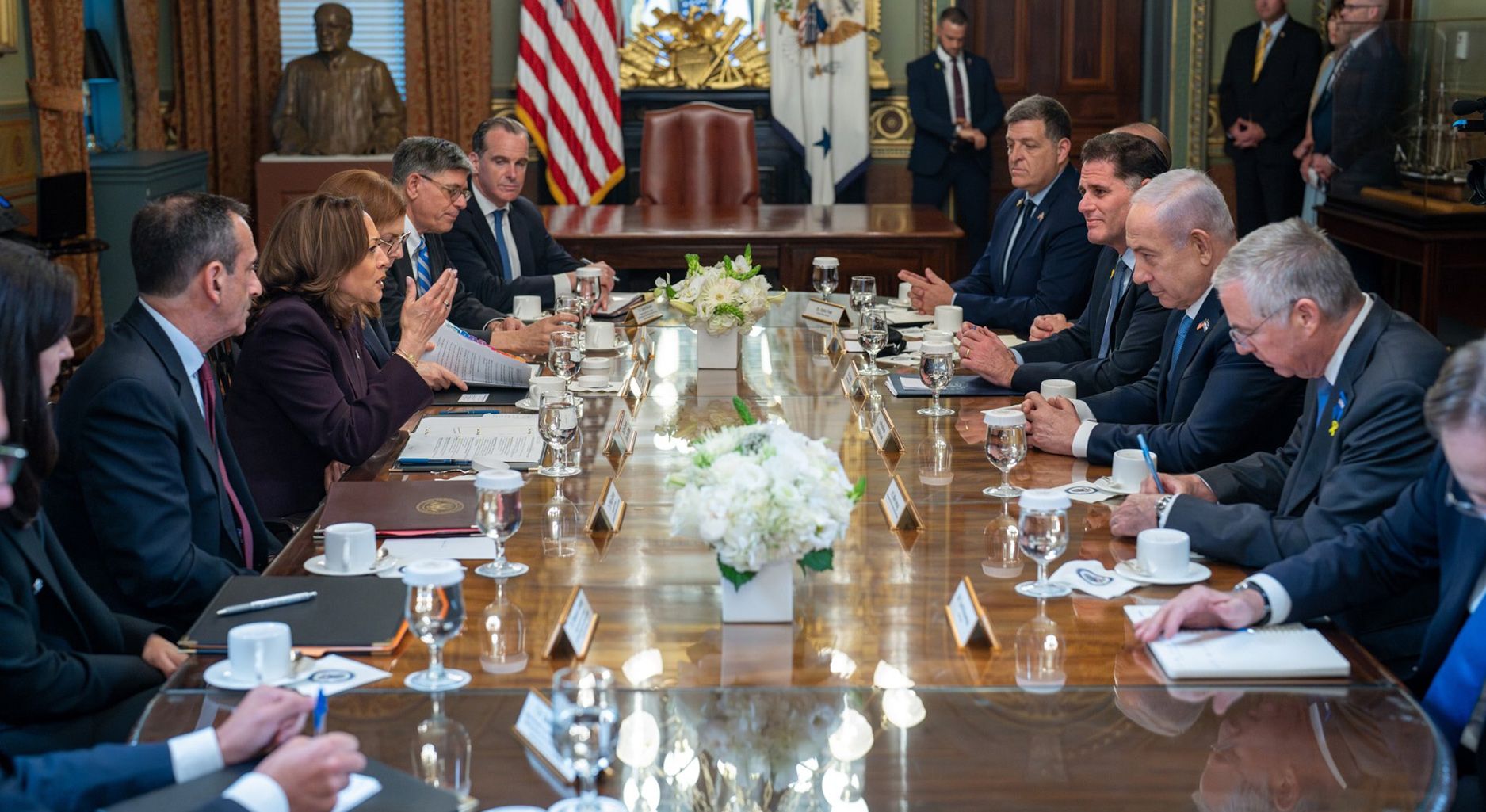Schlagwort: Israel
Der Nahostkonflikt stellt für Deutschland seit jeher eine besondere Herausforderung dar – nicht nur weil er mit geschichts- und migrationspolitischen Themen verknüpft wird, sondern auch weil er den Alltag vieler in Deutschland lebender Menschen berührt. Die jüngste Eskalation des Konflikts lässt tiefgreifende gesellschaftliche Bruchlinien sichtbar werden und fordert innergesellschaftlichen Zusammenhalt in mehrfacher Hinsicht heraus. Gleichzeitig kann der Konflikt jedoch auch als Chance für ihn fungieren. Wie sich der Nahostkonflikt künftig auf den Zusammenhalt in Deutschland niederschlagen wird, hängt maßgeblich vom politischen und gesellschaftlichen Umgang mit ihm sowie vom öffentlichen Diskurs über seine Folgen ab.
European Support for Israeli and American Attacks on Iran – Short-Sighted and Dangerous
The recent U.S. and Israeli attacks on Iran come with major risks, including strengthening the incentives for Iran to build nuclear weapons. The only viable path forward is to negotiate a settlement where Iran keeps its nuclear program but cannot weaponize it. European leaders must push, both publicly and through diplomatic backchannels, to achieve such a deal. The alternative is more war and the prospect of a nuclear Iran.
Kritik ohne Konsequenzen: Überfällige Schritte für eine friedenspolitische Rolle Deutschlands im Israel-Gaza Krieg
Die Kritik am israelischen Vorgehen in Gaza wird plötzlich auch in der deutschen Politik deutlich. Doch fehlt bislang ein wirklicher Politikwechsel. Stärkerer diplomatischer Druck auf Israel, regionale Friedensinitiativen zu verfolgen, die konsequente Unterstützung des Völkerrechts in Bezug auf Rüstungsgüter sowie die Anerkennung von Entscheidungen internationaler Gerichte müssen in den Mittelpunkt der politischen Debatte rücken.
Verrennen sich die Ostermärsche?
Auch dieses Jahr finden in vielen Orten Deutschlands Ostermärsche statt. Die Aufrufe thematisieren vor allem den Krieg gegen die Ukraine, das Blutvergießen in Gaza nach dem Angriff der Hamas auf Israel, das massive Aufrüsten der Bundesrepublik und anderer NATO-Staaten sowie die Stationierung von Mittelstreckenwaffen. Es zeigen sich erhebliche Unterschiede zwischen den Aufrufen, doch wie auffällt, tun sich viele schwer mit Kritik an Russland, während sie Israel massive Vorwürfe machen.
Wenn es weh tut, wird es wichtig: Was heißt gleiches Recht für alle?
Letzte Woche erließ der Internationale Strafgerichtshof Haftbefehle gegen den israelischen Ministerpräsidenten Netanyahu, Ex-Verteidigungsminister Gallant und Hamas-Führer Deif. Daraufhin brach sich gerade in traditionellen Unterstützerländern des Gerichts massive Kritik Bahn: Von Täter-Opfer-Umkehr ist die Rede, von Antisemitismus und Delegitimierung einer Demokratie. Diese Kritik ist nicht nur unzutreffend, sie lässt auch die Grundmisere der liberalen Weltordnung deutlich werden: Recht soll immer für die anderen gelten, während Demokratien selbst bisweilen nicht erkennen, dass auch sie gegen Recht verstoßen. Wer die liberale Weltordnung erhalten will, muss sich an ihre Regeln halten – gerade dann, wenn es weh tut. Und die Entscheidung des IStGH tut weh.
Unterschiede, die keinen Unterschied machen? Trump, Harris und der israelisch-palästinensische Konflikt
Die USA sind der wichtigste Verbündete Israels, doch die Kriegführung Israels im Gaza-Streifen stellt diese Jahrzehnte währende „besondere Beziehung“ derzeit auf eine Belastungsprobe. Nun stehen die US-Wahlen an: Wie würden sich Trump und Harris im Falle ihrer Wahl gegenüber dem Gaza-Krieg und dem israelisch-palästinensischen Konflikt positionieren? Und würden die Unterschiede zwischen ihnen tatsächlich einen Unterschied machen mit Blick auf eine langfristige Lösung des Konflikts?
A Hands-Off Approach to International Law: The Frankfurt Administrative Court’s Stance on Arms Exports to Israel
On 15 July 2024, five individuals from Palestine applied for interim legal relief before the Administrative Court Frankfurt against the Federal Republic of Germany. They challenged arms export approvals by the German Government to Israel and claimed that these endangered their bodily integrity and life. The applicants argued that German arms control law should be interpreted in consideration of the duty to protect the right to life based on Art. 2 (2) 1 German Basic Law. They held that the export approvals violated several international law obligations and were thus unlawful.
Israel–Gaza Beyond the Concept of Genocide: End Mass Violence Against Civilians Now
German debates about the Israel-Gaza war often get caught up in polarising terminology. This applies in particular to the dispute whether a genocide is occurring. Apart from the legal assessment currently being made by the International Court of Justice, a parallel, polemical discussion about the concept of genocide distracts from actual priorities for action. The war has already cost tens of thousands of lives, and many more Palestinians will die as a direct and indirect consequence of the war. The mass violence against civilians and the destruction of conditions of life in Gaza must end immediately – regardless of whether the legal conditions for genocide are met.
Israel-Gaza jenseits des Genozid-Begriffs: Massengewalt gegen Zivilist*innen jetzt beenden
Deutsche Debatten über den Israel-Gaza-Krieg verfangen sich oft in polarisierenden Begrifflichkeiten. Das gilt insbesondere für den Streit um das Vorliegen eines Genozids. Abgesehen von der juristischen Einschätzung, die derzeit der Internationale Gerichtshof vornimmt, lenkt eine parallellaufende, polemische Diskussion um den Völkermordsbegriff von den eigentlichen Handlungsprioritäten ab. Der Krieg kostete schon Zehntausende das Leben, noch viel mehr Palästinenser:innen werden an direkten und indirekten Kriegsfolgen sterben. Die Massengewalt gegen Zivilist:innen und der Entzug von Lebensgrundlagen in Gaza müssen sofort beendet werden – unabhängig davon, ob juristisch die Bedingungen für einen Genozid erfüllt sind.
Court Orders Dutch Government to halt the Export of F-35 Parts to Israel: Implications for the War in Gaza and Beyond
In a landmark ruling in mid-February, the Hague Court of Appeal ordered the Dutch government to stop exporting parts for the Lockheed Martin F-35 Lightning II to Israel, citing the risk of serious violations of international humanitarian law if the F-35 were used for airstrikes in Gaza. Although it seems unlikely that the court order will have any significant impact on Israeli air operations, it raises a number of legal and political challenges to the global F-35 program, the U.S. Department of Defense’s most ambitious and most expensive weapons program to date.

